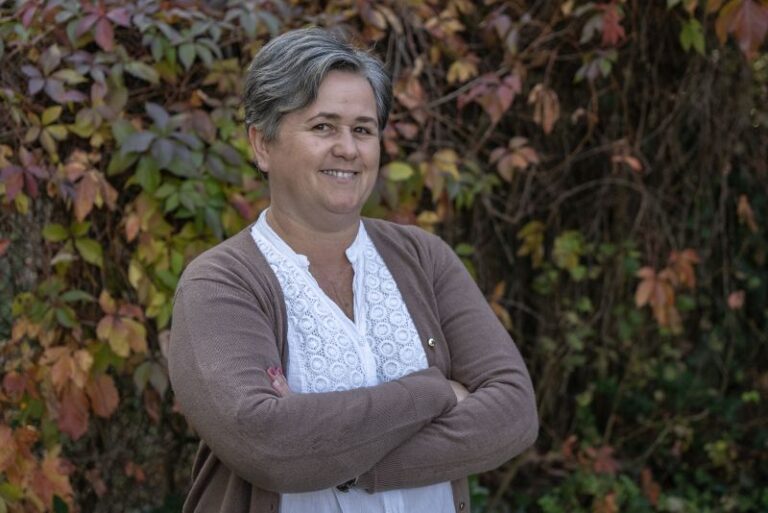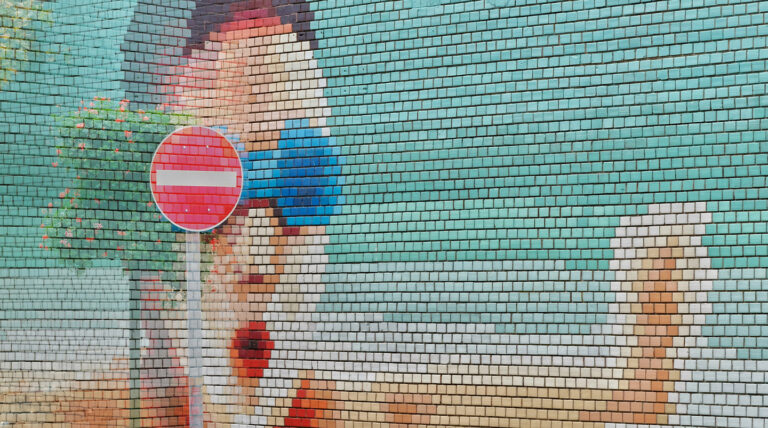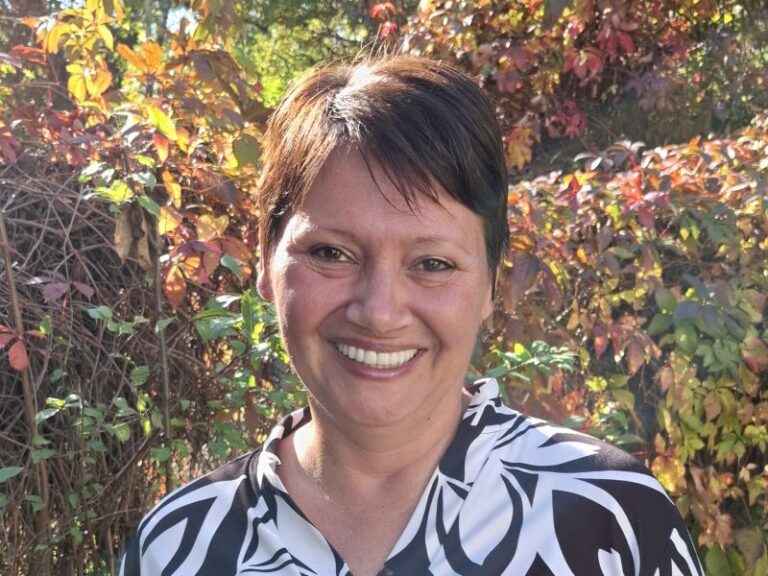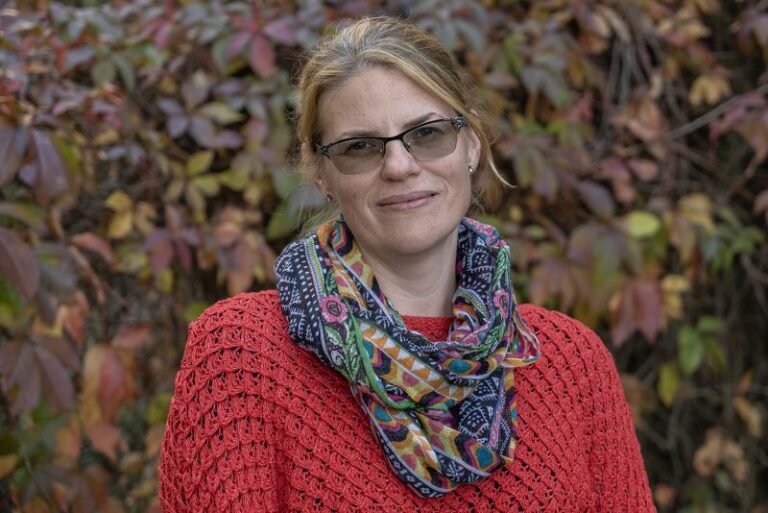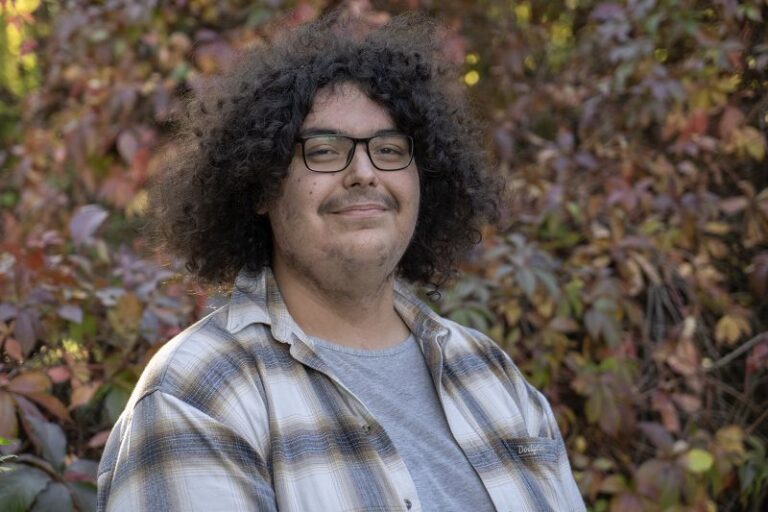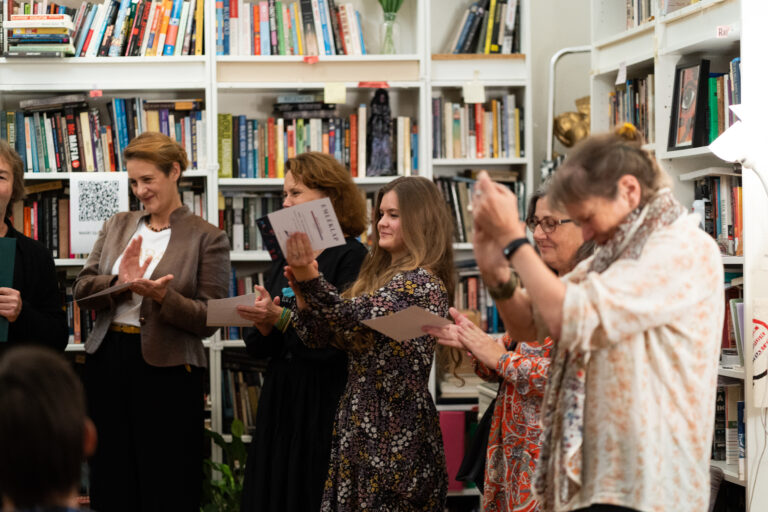“These people love their community so much that they are dissatisfied with it and want to change it.”
There is an incredible tension, narrowing and very strong divisions in small towns, and since the Covid it is much harder to move people. This is the context in which we have launched the second cycle of our Revitalising Small Towns programme, supporting seven active community people over three years. We talked to Edit Kovács, Programme Manager, and Péter Peták, expert of the programme, about the power of locality, citizenship, culture building and permissive supportive behaviour.
What has been your experience of the first cycle of the Revitalising Small Towns programme, which ended this year and supported five community leaders over three years?
Péter Peták: Although I was not working here at the time, there are documents from the first round, so I had a picture, I had impressions. Based on these, the key question for me is how much professional and how much financial support the programme provides. My impression is that, compared with the original idea, the experience of the previous round shows that professional support is more important than was originally planned. There is a greater need for it and the experience of mentoring has been the most memorable for the participants.
This seems to be a surprising experience. I would say that Hungary is a civil desert and money is what really counts.
P.P.: Money is important, and it should be, but it is not so easy to use it well – for example, this is one of the experiences of the previous round. If you think about what you can best use the money for, you can also get insecure about that.
Edit Kovács: The previous round was concluded with a thorough, multi-stakeholder evaluation by an external expert. At the end of his work, he highlighted a number of key elements that the programme needed to take care of, the first of which was personalisation. It was clear that a very direct, honest, reflective relationship had been built up over three years between the beneficiaries and the funding organisation, with room for critical reflection, affirmation and the opportunity to talk about stalling, not just window dressing and successes together. It doesn’t happen straight away, you have to believe it works. For all of this, we will continue to focus on the personal in the coming period, with many meetings and visits.
Another lesson from the evaluation is that in this new circle we are more consciously putting the emphasis on communication: how to make themselves known and how to handle situations when others talk about them. In the previous round, we found that many people shied away from publicity, but when they did step out into the spotlight, they made serious, deep impressions that they didn’t always know what to do with.

What kind of image of small towns and the functioning of the civil sector in small towns have you developed as a result of the applications?
P.P.: I’ve been working in the NGO sector for twenty-five years and I’m always surprised at how indescribable and how different everything is in this field. Add to that how different the small towns are, how different the actors are, but if I have to say something in common, and something that I can identify with emotionally, it is that these people are driven by the love of their town. And they not only love it, they want to do something about it. In fact, they love it so much that they are dissatisfied with it and want to change it. I see a real driving force in that.
What surprised you now?
P.P.: The differences between the municipalities; how much the word small town means. There are five thousand and twenty thousand, there are lowland and dambes hills, there are civilised and less civilised, and there is also a significant difference in the degree of local institutionalisation and organisation. If you just walk around these places and breathe the air, you can already feel the significant differences.
Edit, did you learn anything new about the world of small towns, or the civic world of small towns?
K.E.: It was already evident from the applications, but when we visited the selected ones in the summer, it was even more striking that there is an incredible tension, a narrowing and a very strong division everywhere.
What exactly does this mean?
K.E.: Narrowness means that people who are active in their community have few external contacts and connections, and these are constantly shrinking. There are fewer and fewer opportunities for them to leave their communities for whatever reason, and they are all working and volunteering in their communities, so they are also highly exposed to existential insecurity. It is also clear from experience that since the Covid, a whole new era of community work has begun: orders of magnitude more energy is required to get people involved in community events. And under these conditions, it seems impossible for these active community people to look outwards, go to conferences, go on study trips, make friends. Even though they would have a need to do so.
I use the term ‘divided’ in the sense that there are few active people in these small communities and their numbers are rather dwindling. So different local groups are trying to attract the same people to different activities. Therefore, in the coming period, a lot of emphasis should be put on how to coordinate the activities of the groups in the localities.
Was this the experience regardless of the country?
K.E.: I would rather say that there are small urbanised towns where the community leader starts from a different basis, because there they can build on traditions, local customs, when they say: let’s sit down and talk about the municipality, let’s think about what kind of town we want to see around us, and where we are now in relation to this, and then what we should do. There are small towns in the current grantee group where people don’t do that; it really starts a cultural learning process about how to talk about local issues, public issues. We have to learn that despite our differences, we live in the same municipality, where everyone wants to make it better. Of course, what is better needs to be discussed. There are places where you can build on customs, because there were civil unions a hundred years ago, and there are places where you have to create a culture of that.
That is why we were very pleased that our winners have a need to work together, to meet, to learn from each other, because these people working in very different municipalities with communities in different states will be very inspiring to each other.
Based on the communities and people you know, is there money in small-town civic life?
K.E.: It’s a difficult question. Our general experience has been that our grantees were thinking in incredibly small things: for example, they wanted to buy a soccer ball, a mug, an internet subscription with their grant. We cannot yet decide whether these are simply the standards, what similar grants are spent on, or whether it is that there really is so little local support for these groups.
The professional conversation on this is starting now, because we are permissive funders: we believe that what our partners have put on the table is the basis for them to think long-term and make responsible decisions for their communities. So we certainly won’t argue with them about what they spend the money on, but we want to understand their point of view about why they spend the flexible money we give them. It may well be that they will change their minds, but it may also be that we have to recognise that it is the case that they have no other source for their basic needs. Otherwise, the theme of the joint work is to know, to explore and to work with local resources; it may show that there are no local resources, and it may show that they do not see them.
How did the lessons learned from the previous round, the experience of the apllication, inform the selection?
K.E.: I would like to highlight two things. The first is that we have improved a lot: we have been able to say better who we are looking for, what we are looking for, what we are going to give, what it looks like in practice and who it can be good for. We have words and pictures for all this, and we have a short film to go with it, which can tell you in a summarised way what we want and what difference it has made to someone’s life. So – and this is the second important lesson – we found that the applicants were also much more calibrated: they understood that we were promoting a programme for the whole community of municipalities, not for communities of interest. This together meant that we had 28 applicants, 26 of whom submitted applications, 21 of which were deemed fully relevant and from which we selected the beneficiaries from six municipalities.
Did you have a hard time? Was there an aspect that took everything?
P.P.: These decisions are always difficult to defend; it’s not so good to pick some actors and reject others. It was very interesting, however, in the selection process, that our uncertainties were swung by the personal interviews – although we only spoke online. It also came across in the online meetings that someone was committed to their municipality, which meant a lot to us.
A difficulty in the previous round was that our supporters had difficulty seeing themselves as community leaders. What is the situation now?
K.E.: The word ‘leader’ was used several times in the call, and this became a filter, so we didn’t get people who were bothered by this role. Everybody has their own word: coordinator, organiser, leader, a person who brings people together, but they are not shy of the role itself. Beyond that, they all know what they want to be stronger at. Their personal development plans also show a very strong desire for knowledge and connection, which we want to respond to well.
Can we say anything about what will happen in the selected small towns in the next three years?
P.P.: Community life will be more organised, more things will move and change will be visible. I expect more active players in each town.
K.E.: Exactly. In addition, I think it’s an important thing that these people, community leaders, will be stronger in their roles, more aware, more planned, working in collaboration with others. More importantly, for us, their skills in community engagement will develop, their confidence will grow, because community leaders are role models: the way they relate to others, to issues, the resources they see around them, will have a big impact on the way community members relate to them. The focus of the programme is therefore more about working with selected community leaders because we believe that through them we can give back to the local community. It is an experiment that we believe in very much.
| “I’ll try the other side” We asked Péter Peták what inspires him in this work and why he chose the Roots and Wings Foundation. “The Roots and Wings Foundation and the people who work for it have a long history: good personal relationships and a kind of professional unity. I’ve worked in quite different development programmes as a professional facilitator, and I really like the philosophy of this: today, the small town is a missed perspective. I like that we are giving long-term support and a lot will happen in three years. I also like the fact that it is a personalised mentoring and we leave a lot of autonomy to the person we help. I also feel safe working with Edit because we’ve tried it before, it worked well, it’s nice to be in that role again. I should also say that I was involved in the conversations that led to the creation of the Roots and Wings Foundation, and then when the Community Foundation Support Programme was up and running, I found myself on the beneficiary side because the programme supported us to create a community foundation. I dare to mention this because I was involved in the life of the community foundation for the same reason that the beneficiaries of Revitalising Small Towns are working for: they are motivated by their love of the city and positive change. Now I’m trying my hand at the other side.”  Photo: Dóra Simay Photo: Dóra Simay |
